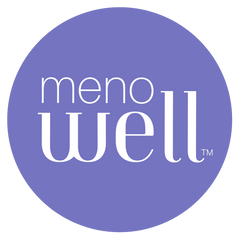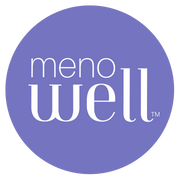Dr. LaReesa's Women's Health Month Reflections

May marks Women’s Health Month. And with this in mind, I wanted to highlight some issues of women’s health that are often under-recognized, specifically those to do with women going through peri-menopause and menopause.
Only about 8% of women receive menopausal care. Some may report a little more than that.
Bottomline.... read that again, and let it actually sink in…
This means that barely one out of every 10 women going through menopause is seeking out care for issues that are drastically impacting their life. Not only that, but I’d argue that while most of these women are very educated, they don’t have the knowledge they need to combat and overcome the menopausal issues they face.
Out of this statistic, African-American women are LESS likely to seek out menopausal care. And as many of us women know, menopausal symptoms can have a significant impact on our quality of life, and who we can trust during this sensitive, yet powerful transition.
Fatigue, hot flashes, and night sweats don’t exactly scream easy-going! They inevitably make things that much harder, which is why access to care and seeking out care is so important.
And get this: About 50% of women in perimenopause say that their symptoms greatly interfere with their life.
On top of this, 55% of women between 40 and 65 years of age claim they are very concerned about their ability to stay active. In fact, African American women of these ages are even more likely to have this concern.
Yet, we’re constantly drilled about the importance of moving our bodies and staying active at every age.
Are you seeing the same gap I am?
Then, there’s the importance of sex in a relationship (and for our health!). I’m not about to shy away from this either.
Yet… Women going through menopause experience vaginal dryness and atrophy, leading to decreased sex drive and potentially less-than-ideal sex lives. Taking it a step forward, how about THE DRIBBLE. Not basketball, but the pending doom of wondering when you step in a new space—you check out bathroom location, or for the next aerobic activity wondering will I wet my underwear again. There’s a reason why marketing protective undergarments is now leading to promotions of fashionable colors and prints. WOW!
It’s a cover-up, literally. When possible, instead of hiding in the shame of it all, seek the solutions and providers to give options that explore our needs.
Again, approximately 8% of these women seek out care… From that, we can definitely infer that many women aren’t experiencing the sex life that they would like or the intimacy with their partners that they would like from the DREADFUL DRIBBLE or the DRYNESS DOWNUNDER.
If menopause symptoms continue for the longer span of 10 years, imagine what that does to a couple’s intimacy. Perhaps, this isn’t only a female issue after all!
Our world is changing. These issues are coming more and more to the forefront….
But…
There’s still a gap, which is why I always encourage self-advocacy. You have to seek out care. You have to self-educate. Being the CEO of your body means being deliberate. It’s the unfortunate truth of the here and now. At the same time, this should empower you. Your health is 110% within your control.
Additionally, when menopause happens, many women go through divorces, experience the death of their spouses, become empty-nesters, change careers, or begin taking care of ill parents. It’s not easy.
On top of this, we see all kinds of different families today. There are blended families, mixed families, and more. Even the word “woman” is being explored beyond gender.
I repeat: The world is changing.
And we need to start riding that wave of change. We need to start asking ourselves the hard questions rather than simply relying on the system to look after us.
Some questions to ask yourself regarding your health…
- Do I know my body well? How well?
- What can I do to better understand it?
- What educational gaps can I fill when it comes to understanding what my body is going through?
- How fit am I?
- What is my biological age vs my chronological age?
- Can wearable devices and fem-tech products bridge to my health care provider or will I still pretty much be on my own?
- How do I find the best clinician and provider to help me explore this further?
- What can wearable technology tell me about my health?
- Is menopause tele-health for me?
- Should I join a community to help?
- What can I learn to get from where I am now to where I want to be?
- What changes can I make?
- How can I track these changes?
- What does the second stage of my life look like?
And remember, when we heal women, we heal the world!



